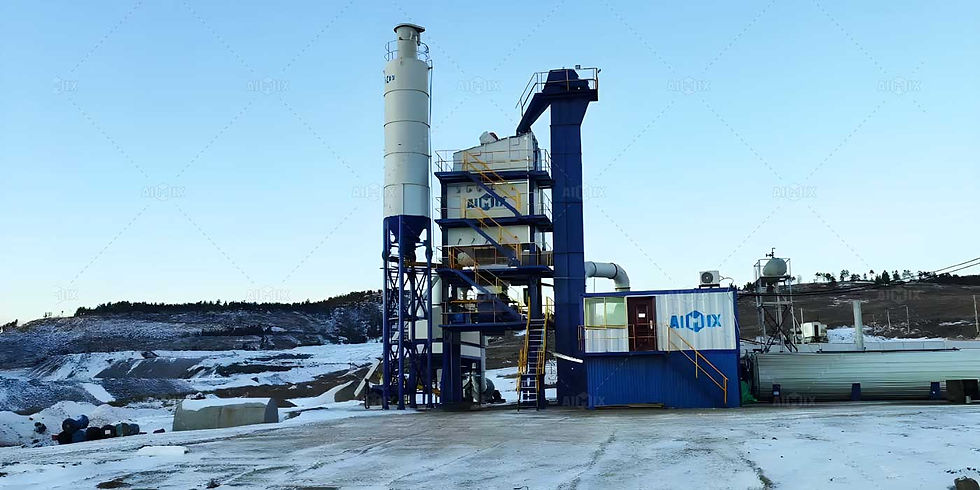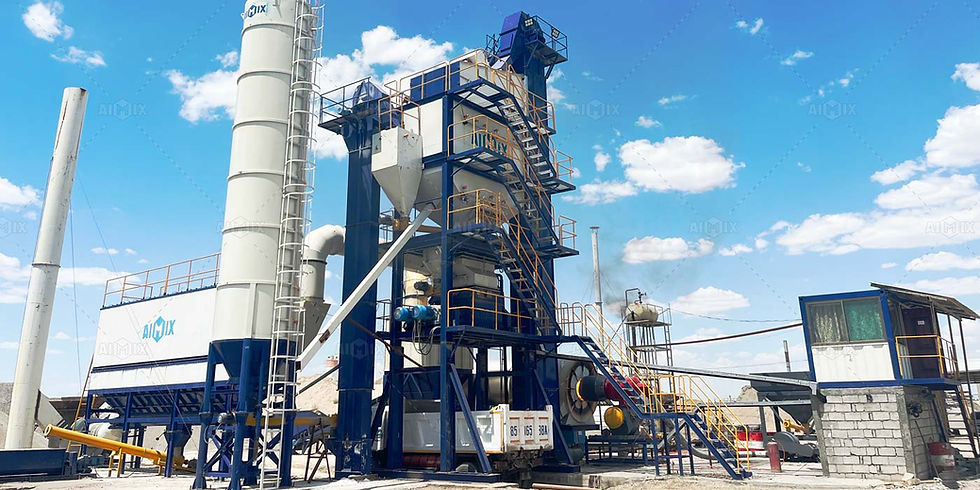How Do Asphalt Prices Fluctuate, and How Can an Asphalt Mixing Plant Owner Benefit from Price Variations?
- aimixglobal5
- Mar 13, 2025
- 2 min read
Asphalt prices are constantly changing due to various economic and industry factors. For asphalt mixing plant owners, these price fluctuations present both challenges and opportunities. Understanding the key drivers behind asphalt price changes can help business owners make informed purchasing decisions and optimize profitability. This article explores why asphalt prices fluctuate and how asphalt mixing machine owners can benefit from these changes.

What Causes Asphalt Price Fluctuations?
1. Crude Oil Price Changes
Asphalt is a petroleum-based product, making its price heavily influenced by crude oil costs. When crude oil prices rise, asphalt prices typically follow. Factors affecting crude oil prices include global supply and demand, geopolitical tensions, and OPEC production decisions.
2. Seasonal Demand Variations
Asphalt demand fluctuates throughout the year. In peak construction seasons, such as spring and summer, higher demand drives up prices. In contrast, prices tend to drop in winter when construction activity slows down.
3. Transportation and Logistics Costs
Moving raw materials and finished asphalt involves significant transportation costs. Rising fuel prices, supply chain disruptions, or labor shortages in logistics can contribute to price increases.
4. Regional Market Conditions
Local infrastructure projects, government regulations, and economic conditions impact asphalt pricing. Regions with high construction activity often see higher asphalt prices due to increased demand.
5. Refinery Production Levels
Asphalt is a byproduct of crude oil refining. If refineries prioritize gasoline and diesel production, asphalt supply may decrease, leading to price hikes.

How Can Asphalt Mixing Plant Owners Benefit from Price Fluctuations?
Understanding price trends allows plant owners to take strategic actions to optimize costs and maximize profits.
1. Buying Asphalt in Bulk During Low-Price Periods
Asphalt prices are lower in off-peak seasons. Purchasing and storing asphalt in bulk when prices drop can reduce production costs and increase profitability when demand rises.
2. Investing in High-Efficiency Equipment
Modern asphalt plants in South Africa, like those from AIMIX, are designed for fuel efficiency and waste reduction. Lower fuel consumption means less dependency on fluctuating oil prices, leading to more stable operating costs.
3. Offering Competitive Pricing in the Market
By managing costs effectively, plant owners can offer more competitive pricing to contractors and construction firms. This can lead to increased orders and long-term business relationships.
4. Exploring Alternative Raw Materials
Recycled asphalt pavement (RAP) and other alternative materials can help reduce dependency on new asphalt supplies. Using RAP lowers material costs and provides an environmentally friendly solution.
5. Diversifying Customer Base
Serving both public and private sector clients can help stabilize income. Government contracts, for example, often provide steady demand, even during economic downturns.

Conclusion: Maximize Profits with AIMIX Asphalt Mixing Plants
Asphalt price fluctuations are inevitable, but strategic planning can turn them into opportunities. By understanding the market, purchasing wisely, and investing in efficient equipment, asphalt plant owners can maintain profitability. AIMIX provides advanced asphalt plant mobile designed for efficiency, cost savings, and sustainability. Contact us today to learn how our solutions can help your business thrive in changing market conditions.



Comments